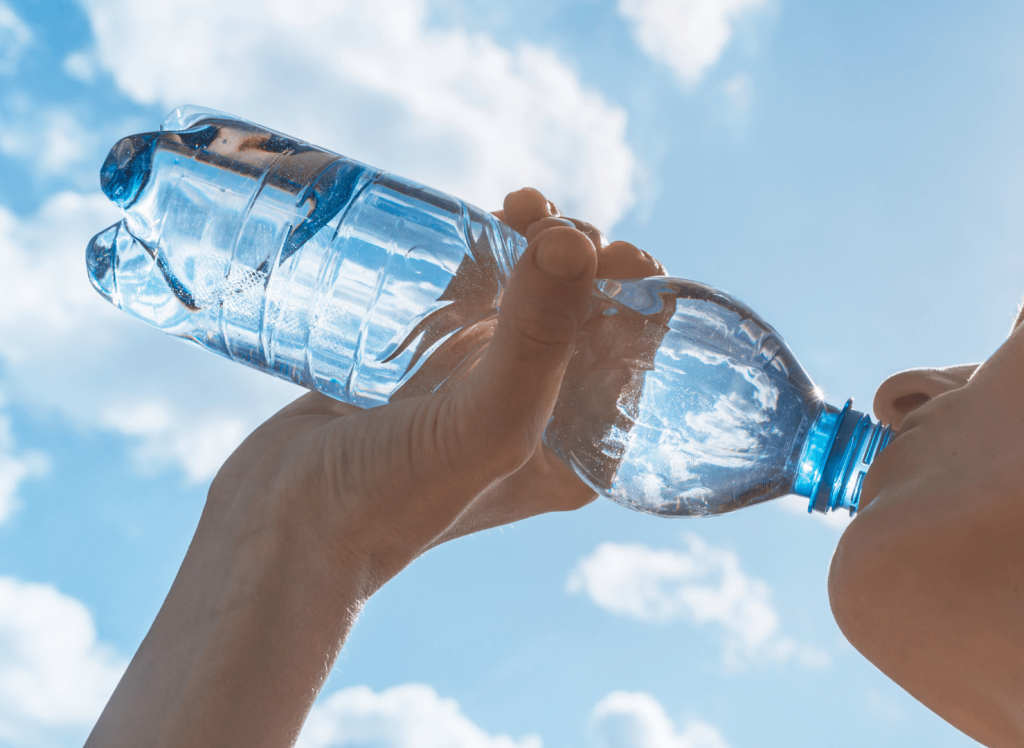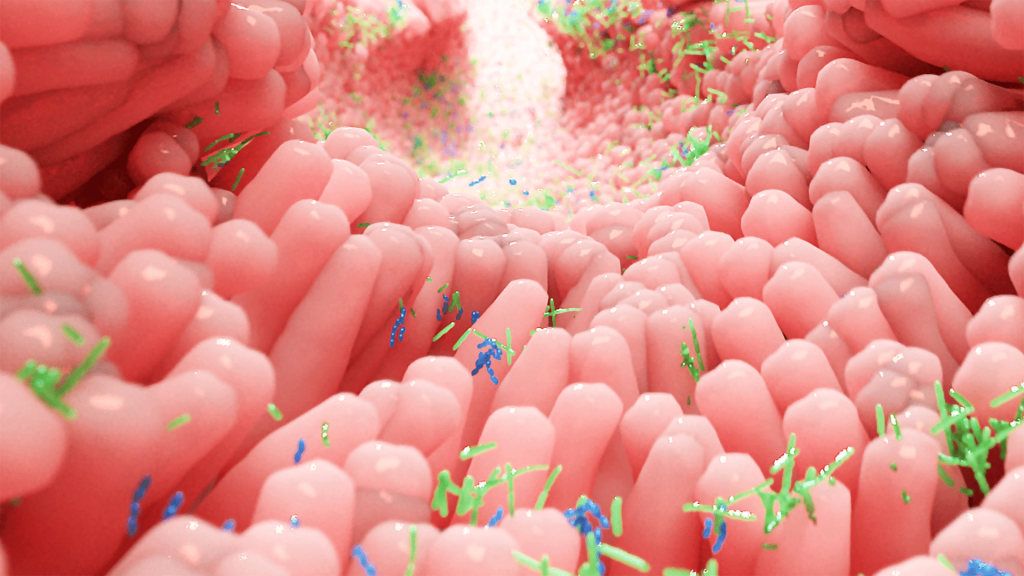
How To Keep Your Gut Healthy While Traveling


How To Keep Your Gut Healthy While Traveling
In this article, you’ll learn the reasons behind these stomach issues, and evidence-based tips both before and during your trip to reduce your risk.
Why Do We Get Travel Stomach Issues?
Your Gut Flora Adapts As You Eat Different Foods And Are Exposed To Different Microbes
Trying new foods can be an exciting experience, but the repercussions for your gut are not always enjoyable. You have your own unique ecosystem of bacteria in your gut. Like in nature, your ecosystem must adapt if you introduce something new. This can often result in some initial digestive problems.
Simply eating differently (like switching from omnivore to plant-based) can change over your gut bacteria within the span of 48 hours.
A study of 47 adults traveling from Sweden abroad examined their fecal bacteria before and after travel. While the overall gut bacterial composition remained unaffected, the family of bacteria, including salmonella, shigella, and Escherichia coli, increased 10-fold.
The family of bacteria mentioned above, Enterobacteriaceae, and many other bacteria can easily be spread through contaminated water or food or by being in contact with an animal carrier.
Each country you visit has unique strains of bacteria. When you visit new places, you introduce those bacteria to your gut, where they try to settle in. This can lead to unpleasant symptoms such as diarrhea and abdominal pain.

Food And Water-Borne Bacteria, Viruses, And Parasites
Many countries, especially tropical ones, don’t have the same hygiene, food handling standards, or water chlorination that you are used to. In these countries, you may be more likely to be exposed to food and water-borne pathogens than in your home countries.
A common cause of travel sickness is from the bacteria I mentioned earlier, enterobacteria. It’s not, however, the only cause. Viruses and parasites can also be the culprits of unpleasant symptoms.
Noroviruses are the leading cause of foodborne illness worldwide. You can become sick from it by accidentally getting tiny feces particles in your mouth. This can happen through exposure from eating contaminated food, touching a contaminated surface, or drinking contaminated water.
Next up, we’ve got parasites. Just the thought of them makes me squirm. In a study of 6,086 travelers, parasites were the highest reported gut infection. While many different parasites exist, Giardia, Crypto, and Entamoeba histolytica are the most common causes of “travel tummy.” Parasite exposure happens through contaminated food or drink.
You’ll need to be extra careful about hygiene and the cleanliness of your food, and avoid eating raw food and stick to drinking only bottled water. It’s also wise to carry some medications and activated charcoal, but prevention is key.
Keep in mind that getting a gut infection isn’t just a matter of being exposed to these pathogens, though. It means your gut flora and your immune system aren’t strong enough to remain unfazed against the pathogens.
Your gut flora can resist the colonization of these new bacteria, whether they’re good or bad. Trillions of these bacteria in your gut flora have a balance unique to you, and they play a critical role in protecting you against gut infection.
In a study of 90 international travelers from Hong Kong, researchers examined the good bacteria present before and after travel compared to unhealthy bacteria levels. Individuals with high levels of actinobacteria richness (an important gut bacteria to maintain balance) had lower levels of enzymes caused by unhealthy bacteria post-travel.
Individuals with lower actinobacteria richness had higher levels of the same enzymes post-travel. Therefore, having lower levels of healthy gut bacteria or lower gut flora diversity increases your risk of getting sick.
It’s not too early to take steps to protect your gut and reduce your risk of getting sick. Read on to find out more.

Natural Ways To Keep Your Gut Healthy While Traveling
1. Use Digestive Enzymes And Betaine HCL
Using digestive enzymes can help you enjoy local cuisines without digestive discomfort. When you have low digestive power, you end up experiencing those uncomfortable symptoms like bloating, indigestion, and stomach heaviness. Adding that to the introduction of new strains of bacteria makes the outcome more precarious.
Digestive enzymes can break down proteins, carbohydrates, and fats in foods and help you absorb more nutrients. In a study comparing the effectiveness of digestive enzymes versus medication to relieve digestive problems, the enzymes were equally as effective, with a bonus.
The enzymes also relieved digestive discomfort at a much higher rate. Taking some control by taking digestive enzymes gives you a leg up on stomach travel discomfort.
Maintaining optimal stomach acidity is essential for preventing gut infections. Your stomach acidity is the #1 protective barrier against bacteria and parasites. When your gut pH is less than 3, bacteria cannot survive for more than 15 minutes.
One study compared the bacteria-killing properties of stomach acid. Researchers compared the stomach acid in patients with a normal stomach pH of 3 or less to patients with less acidic stomach acid with a pH of greater than 6.8. Those with normal stomach acid levels killed 99% of bacteria within 15 minutes. Individuals with less acidic stomach acid did not kill any of the bacteria.
Not only can proper stomach acidity kill microbes, but it also helps your digestive system break down food and move it along. The acid in our stomachs is hydrochloric acid.
Low stomach acid is more common if you:
- Are 65 or older
- Experience chronic stress
- Take antacid frequently
- Have or recently had an H. Pylori infection
- Had gastric bypass surgery
- Experience any type of suboptimal digestion
Taking betaine HCL (hydrochloride) is a great way to optimize your stomach acid levels. It can re-acidify your stomach. It’s best to take it with food at mealtime.
2. Strengthen Your Gut Flora And Barrier
Taking probiotics alone doesn’t tend to change your gut flora, but synbiotics can. Synbiotics are a combination of both prebiotics and probiotics. Prebiotics are fibers that set the stage for probiotics. Your gut cannot digest them, so they are left over to feed probiotics.
The combination of prebiotics and probiotics makes probiotics even more effective. More healthy gut bacteria means more protection from the bad bacteria you are sure to encounter while traveling.
Another way to strengthen your gut barrier before and after your trip is with postbiotics like butyrate. Butyrate is produced in your gut when good bacteria break down fiber in your colon. It’s also the primary source of energy for your colon. Without it, your gut cells don’t have enough energy to maintain your gut barrier. More importantly, butyrate stimulates your gut lining cells to produce peptides against bad bacteria.
A study examined butyrate’s effect on macrophages, your white blood cells responsible for engulfing and destroying other cells like bad bacteria. Butyrate increased the bacteria-killing activity of macrophages. This activity is important for killing bacteria beyond your gut barrier.
Microbiome Breakthrough is an excellent source of synbiotics designed to heal your gut and improve your gut microbiome. Collagen and gelatin boost the benefits of synbiotics by providing nutrients to nourish your gut lining. You can even boost your butyrate levels with prebiotics to feed and improve your gut lining. Last but not least, the IgYmax in Microbiome Breakthrough can safely and specifically bind bad microbes and escort them out of your gut.

3. Use Probiotics
Probiotics like Lactobacillus plantarum OM promote digestive regularity, and produce enzymes that help you digest your food and substances that inhibit harmful bacteria. If you do get traveler’s diarrhea, it can support faster recovery.
L. plantarum relieves diarrhea caused by E. coli from the Enterobacteriaceae family, a common bacteria encountered while traveling. L. plantarum may even reconstruct unbalanced gut flora. It does all this while increasing the important organic acids that support your digestive health.
Read more about this fantastic probiotic here.
4. Eat Mindfully
Even if you’re having a great time, travel can be stressful. There are flights to catch, new and often challenging situations, and new people to meet.
With your brain in constant contact with your gut through the gut-brain axis, it’s hard to escape the havoc stress can wreak on your gut. Stress can compromise the healthy cells in your intestines. And when they’re compromised, undigested food, bacteria, and toxins can pass through the lining and eventually get into your bloodstream, referred to as leaky gut.
Stress can also prevent you from fully digesting your meals. When you are stressed, you trigger your body’s fight-or-flight response. To preserve energy for what your body believes may be coming, your central nervous system shuts down digestion.
Mindful eating is a great way to counteract the effects of stress on your gut and digestion. It optimizes your digestion while allowing you to enjoy your food more fully. Here are some tips on how to eat more mindfully:
- Try not to skip meals. Showing up to a meal extra hungry makes it harder to enjoy your food. Unless you practice intermittent fasting.
- Take a moment to appreciate your food. Express gratitude for the food and for the company you are with.
- Use all of your senses. Take note of the color and texture of your food and the sounds around you while you eat. This will help you to be fully present.
- Take small bites. Tasting your food is easier if you don’t have a mouthful.
- Eat slowly. Take deep breaths or put your fork down between bites. Chew your food thoroughly.
Taking these steps can help regulate your stress response and improve your digestion.

5. Allocate Time To Use The Bathroom
If you get constipated while traveling, you’re not alone. It can be caused by:
- Changes in your daily routine
- Dehydration
- Eating foods you normally wouldn’t
- Disrupted sleep
- Stress and anxiety
- Holding your stool until you get somewhere you’re more comfortable
Not only does being constipated make you uncomfortable, but it’s also not healthy for your body. When your stool sits in your colon for a longer time, it can increase the amount of bacteria sitting in your gut and change your gut flora.
Also, your body eliminates most fat-soluble metabolic waste into your bile, which is then supposed to leave your body through your stool. Given long enough, your body can re-absorb toxic waste from the stool into the bloodstream. This reabsorption can cause hormone imbalances and may increase your risk of certain cancers.
Make sure you’re giving yourself enough time to relax and go to the bathroom. Don’t hold it until you get home. Try to maintain a regular schedule to give your body time to release.
If that is still not enough to get your digestion regulated, or if you want to get a leg up on constipation, Herbal Power Flush can help. This blend of fiber, herbs, and digestive enzymes works overnight to restore regularity by morning.
For more tips on how to relieve constipation, check out this blog post.
6. Avoid Foods That Trigger Your Stomach Issues
This may be a no-brainer, but getting a reminder is always good. Don’t eat foods that cause tummy troubles for you, especially if you’ll be traveling by plane. Some top foods to avoid include:
- Spicy foods. High amounts of capsaicin, found in chili peppers, can cause intestinal inflammation, not to mention heartburn, diarrhea, and pain.
- Greasy and fried foods. These are difficult to digest and can lead to heartburn and acid reflux.
- Gas-producing foods. These include beans, dairy (if you’re lactose intolerant), onions, carrots, brussel sprouts, raisins, bananas, apricots, and wheat.
- Alcohol. Alcohol can increase your risk of heartburn and acid reflux. Too much can cause intestinal inflammation, leaky gut, and increase bad bacteria in your gut.
- Acidic fruits. Eating grapefruit, lemon, oranges, and tomatoes can irritate your stomach lining.
Everyone is different, so you know what foods you can handle well and which foods cause you trouble. If you choose to enjoy these foods, digestive aids like MassZymes and HCL Breakthrough are great tools in your toolbox to keep your digestion smooth.

7. Use Antimicrobial Herbs
You can pick up parasites without even knowing it. Taking herbs like those found in Para Guardian can inhibit parasites and bad bacteria without disrupting your gut flora.
Some of the most effective antimicrobial and digestive-soothing herbs, to name a few, include:
- Black walnut
- Clove [R29]
- Ginger
- Garlic
- Cinnamon
- Thyme
- Fennel
- Chamomile
- Turmeric
All of the herbs above have the added benefit of being inflammation-balancing and antioxidants. Taking these herbs preventively is a good idea, although they don’t replace medications.
The Total Package
What if I told you you could find all 6 supplements I mentioned throughout the article in just one package? Not only does it support you in every way you need, but it also saves you money. The 90-Day Gut Cleanse Stack includes the herbal supplements you need to eliminate foreign invaders and protect yourself from future threats. It’s the total travel package to ensure you enjoy your visit instead of being stuck in the bathroom.
The Takeaway
The joys and stresses of holiday travel are quickly approaching. The frustration of stomach discomfort doesn’t have to be inevitable. Choosing the right supplements and foods, and eating mindfully, will support your gut and keep you feeling great.
References
- David LA, Maurice CF, Carmody RN, et al. Diet rapidly and reproducibly alters the human gut microbiome. Nature. 2014;505(7484):559-563. doi:10.1038/nature12820
- Kampmann C, Dicksved J, Engstrand L, Rautelin H. Changes to human faecal microbiota after international travel. Travel Med Infect Dis. 2021;44(102199):102199. doi:10.1016/j.tmaid.2021.102199
- McGregor AC, Wright SG. Gastrointestinal symptoms in travellers. Clin Med. 2015;15(1):93-95. doi:10.7861/clinmedicine.15-1-93
- Koo HL, Ajami N, Atmar RL, DuPont HL. Noroviruses: The leading cause of gastroenteritis worldwide. Discov Med. 2010;10(50):61-70.
- Ushijima H, Fujimoto T, Müller WEG, Hayakawa S. Norovirus and foodborne disease: A review. Food saf. 2014;2(3):37-54. doi:10.14252/foodsafetyfscj.2014027
- Greenwood Z, Black J, Weld L, et al. Gastrointestinal infection among international travelers globally. J Travel Med. 2008;15(4):221-228. doi:10.1111/j.1708-8305.2008.00203.x
- Khan I, Bai Y, Zha L, et al. Mechanism of the gut Microbiota colonization resistance and Enteric pathogen infection. Front Cell Infect Microbiol. 2021;11:716299. doi:10.3389/fcimb.2021.716299
- Peng Y, Liang S, Poonsuk K, et al. Role of gut microbiota in travel-related acquisition of extended spectrum β-lactamase-producing Enterobacteriaceae. J Travel Med. 2021;28(3):taab022. doi:10.1093/jtm/taab022
- Quinten T, Philippart JM, De Beer T, Vervarcke S, Van Den Driessche M. Can the supplementation of a digestive enzyme complex offer a solution for common digestive problems? Arch Public Health. 2014;72(S1):P7. doi:10.1186/2049-3258-72-s1-p7
- Giannella RA, Broitman SA, Zamcheck N. Gastric acid barrier to ingested microorganisms in man: studies in vivo and in vitro. Gut. 1972;13(4):251-256. doi:10.1136/gut.13.4.251
- How Does the Stomach Work? Institute for Quality and Efficiency in Health Care (IQWiG); 2016.
- Guilliams TG, Drake LE. Meal-time supplementation with betaine HCl for functional hypochlorhydria: What is the evidence? Integr Med (Encinitas). 2020;19(1):32-36.
- Markowiak P, Śliżewska K. Effects of probiotics, prebiotics, and synbiotics on human health. Nutrients. 2017;9(9):1021. doi:10.3390/nu9091021
- Bomba A, Nemcová R, Mudroňová D, Guba P. The possibilities of potentiating the efficacy of probiotics. Trends Food Sci Technol. 2002;13(4):121-126. doi:10.1016/s0924-2244(02)00129-2
- Roediger WE. Role of anaerobic bacteria in the metabolic welfare of the colonic mucosa in man. Gut. 1980;21(9):793-798. doi:10.1136/gut.21.9.793
- Schulthess J, Pandey S, Capitani M, et al. The short chain fatty acid butyrate imprints an antimicrobial program in macrophages. Immunity. 2019;50(2):432-445.e7. doi:10.1016/j.immuni.2018.12.018
- Yue Y, He Z, Zhou Y, et al. Lactobacillus plantarum relieves diarrhea caused by enterotoxin-producing Escherichia coli through inflammation modulation and gut microbiota regulation. Food Funct. 2020;11(12):10362-10374. doi:10.1039/d0fo02670k
- Madison A, Kiecolt-Glaser JK. Stress, depression, diet, and the gut microbiota: human–bacteria interactions at the core of psychoneuroimmunology and nutrition. Curr Opin Behav Sci. 2019;28:105-110. doi:10.1016/j.cobeha.2019.01.011
- Cherpak CE. Mindful eating: A review of how the stress-digestion-mindfulness triad may modulate and improve gastrointestinal and digestive function. Integr Med (Encinitas). 2019;18(4):48-53.
- Rao SS, Hatfield RA, Suls JM, Chamberlain MJ. Psychological and physical stress induce differential effects on human colonic motility. Am J Gastroenterol. 1998;93(6):985-990. doi:10.1111/j.1572-0241.1998.00293.x
- Stephen AM, Wiggins HS, Cummings JH. Effect of changing transit time on colonic microbial metabolism in man. Gut. 1987;28(5):601-609. doi:10.1136/gut.28.5.601
- Fuke N, Nagata N, Suganuma H, Ota T. Regulation of gut Microbiota and metabolic endotoxemia with dietary factors. Nutrients. 2019;11(10):2277. doi:10.3390/nu11102277
- Maruti SS, Lampe JW, Potter JD, Ready A, White E. A prospective study of bowel motility and related factors on breast cancer risk. Cancer Epidemiol Biomarkers Prev. 2008;17(7):1746-1750. doi:10.1158/1055-9965.EPI-07-2850
- Xiang Q, Tang X, Cui S, et al. Capsaicin, the spicy ingredient of chili peppers: Effects on gastrointestinal tract and composition of gut Microbiota at various dosages. Foods. 2022;11(5):686. doi:10.3390/foods11050686
- Hasler WL. Gas and bloating. Gastroenterol Hepatol (N Y). 2006;2(9):654-662.
- Chen SH, Wang JW, Li YM. Is alcohol consumption associated with gastroesophageal reflux disease? J Zhejiang Univ Sci B. 2010;11(6):423-428. doi:10.1631/jzus.B1000013
- Bishehsari F, Magno E, Swanson G, et al. Alcohol and gut-derived inflammation. Alcohol Res. 2017;38(2):163-171.
- Ho KV, Lei Z, Sumner LW, et al. Identifying antibacterial compounds in black walnuts (Juglans nigra) using a metabolomics approach. Metabolites. 2018;8(4). doi:10.3390/metabo8040058
- Radünz M, da Trindade MLM, Camargo TM, et al. Antimicrobial and antioxidant activity of unencapsulated and encapsulated clove (Syzygium aromaticum, L.) essential oil. Food Chem. 2019;276:180-186. doi:10.1016/j.foodchem.2018.09.173
- Wang X, Shen Y, Thakur K, et al. Antibacterial Activity and Mechanism of Ginger Essential Oil against Escherichia coli and Staphylococcus aureus. Molecules. 2020;25(17):3955. doi:10.3390/molecules25173955
- Petropoulos S, Fernandes Â, Barros L, Ciric A, Sokovic M, Ferreira ICFR. Antimicrobial and antioxidant properties of various Greek garlic genotypes. Food Chem. 2018;245:7-12. doi:10.1016/j.foodchem.2017.10.078
- Gupta C, Garg AP, Uniyal RC, Kumari A. Comparative analysis of the antimicrobial activity of cinnamon oil and cinnamon extract on somefood-borne microbes.
- Benameur Q, Gervasi T, Pellizzeri V, et al. Antibacterial activity of Thymus vulgaris essential oil alone and in combination with cefotaxime against blaESBL producing multidrug resistant Enterobacteriaceae isolates. Nat Prod Res. 2019;33(18):2647-2654. doi:10.1080/14786419.2018.1466124
- Diao WR, Hu QP, Zhang H, Xu JG. Chemical composition, antibacterial activity and mechanism of action of essential oil from seeds of fennel (Foeniculum vulgare Mill.). Food Control. 2014;35(1):109-116. doi:10.1016/j.foodcont.2013.06.056
- Alkuraishy H, Al-Gareeb A, Albuhadilly A, Alwindy S. In vitro Assessment of the Antibacterial Activity of Matricaria chamomile Alcoholic Extract against Pathogenic Bacterial Strains. Br Microbiol Res J. 2015;7(2):55-61. doi:10.9734/bmrj/2015/16263
- Negi PS, Jayaprakasha GK, Jagan Mohan Rao L, Sakariah KK. Antibacterial activity of turmeric oil: a byproduct from curcumin manufacture. J Agric Food Chem. 1999;47(10):4297-4300. doi:10.1021/jf990308d
